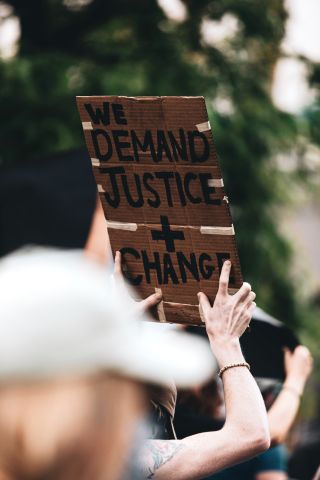Body Image
Beyond the Surface
Navigating body image struggles with a social justice framework.
Updated November 24, 2023 Reviewed by Monica Vilhauer
Key points
- Pursuing an idealized body comes at a cost.
- Societal norms linking value to appearance perpetuate discrimination.
- Aligning personal values with the rejection of damaging societal norms empowers transformative action.
As a therapist specializing in the treatment of eating disorders and body image concerns, I frequently encounter a recurring theme in discussions with my patients. Many express feeling better and more confident when they successfully lose weight, adhere to a diet, or follow the food rules of their eating disorder. The experiences of receiving praise for weight loss and their "discipline" and "willpower" influence how they view and value themselves, ultimately contributing to their overall sense of worth.
At What Cost?
The allure of positive attention makes it understandable why individuals might become obsessed with weight control measures. However, this pursuit comes at a cost. One's world shrinks to achieve and sustain an unnatural weight or body shape not aligned with one's genetic blueprint. Rigidity replaces spontaneity, turning simple social endeavors, like agreeing to dinner with friends, into calculations and compensations.
But what happens when the weight for which they received commendation is regained? The consequences extend beyond physical changes. Individuals grapple with shame, feeling like failures in the eyes of a society that often equates success with weight loss. The unwavering focus on outward appearance strains relationships, diminishes self-esteem, and erodes the ability to be authentically present.
While individuals may find ease in buying clothes and feel good about their appearance, they unknowingly confine themselves to a sort of prison. The preoccupation with avoiding weight gain becomes all-consuming, distancing one from attunement to internal cues.
This raises the question: How can one attain the confidence, positive attention, and acceptance they desire while relinquishing the relentless preoccupation with controlling their weight and shape?
Introspection on this issue marks a pivotal step toward healing. It urges one to question the sustainability and authenticity of confidence rooted in conditional acceptance. Detaching from the belief that one's worth is determined by conformity to the "thin ideal" requires a multifaceted approach, including shifts in thinking and behavioral interventions.
Framing Body Image as a Social Justice Issue

One transformative approach is to frame body image struggles as a social justice issue. Our culture perpetuates the belief that one's value is determined by body size, shape, or weight, inadvertently normalizing and condoning discrimination. When viewed through the lens of social justice, individuals are prompted to acknowledge and appreciate the diversity of bodies, including their own.
Delving deeper into this exploration reveals the weight bias, stigma, and challenges that significantly obstruct body acceptance and appreciation. Our culture's pervasive weight bias reinforces harmful stereotypes, contributing to discrimination internalized by individuals grappling with body image concerns.
Challenging Narratives
Challenging harmful narratives is fundamental to the path of healing. Reframing the conversation around body image as a social justice issue is crucial, but equally vital is actively participating in dismantling harmful narratives. This requires engaging in critical conversations, questioning media portrayals, and actively promoting a culture of inclusivity and respect for diverse bodies in social circles and beyond.
Furthermore, acknowledging the intersectionality of body image struggles is essential. Recognizing that individuals face unique challenges based on factors such as race, gender, and socioeconomic status is critical for cultivating genuine empathy and dismantling systemic biases. It underscores the interconnectedness of personal struggles with broader societal issues.
The journey toward true confidence and acceptance is nuanced, demanding patience, self-compassion, and a commitment to challenging the status quo. Embracing this journey means celebrating one's uniqueness and recognizing that true confidence and acceptance extend far beyond socially constructed societal expectations.
Values as Motivation for Change
By framing the dialogue around body image as a social justice issue, individuals foster their healing and contribute to the collective dismantling of harmful norms and biases. This perspective empowers individuals to recognize the conflict when societal expectations clash with their values. If someone values equality and condemns discrimination, focusing on conforming to a socially constructed hierarchy creates a profound internal dissonance.
Framing body image struggles within a social justice framework allows individuals to harness their values as a source of motivation for change. If pursuing an idealized body conflicts with one's core values, it catalyzes transformative action. This shift in perspective aligns personal growth with societal change, intertwining individual well-being with pursuing a more inclusive and accepting culture.
Conclusion: Toward a More Inclusive and Accepting Society
The journey toward healing from body image struggles requires a comprehensive and thoughtful approach. Recognizing the impact of societal norms, challenging harmful narratives, and framing the conversation within a social justice context are vital components of this transformative process. By actively participating in individual and collective change, individuals can pave the way for a more inclusive and accepting society and break free from the constraints of damaging societal norms.




